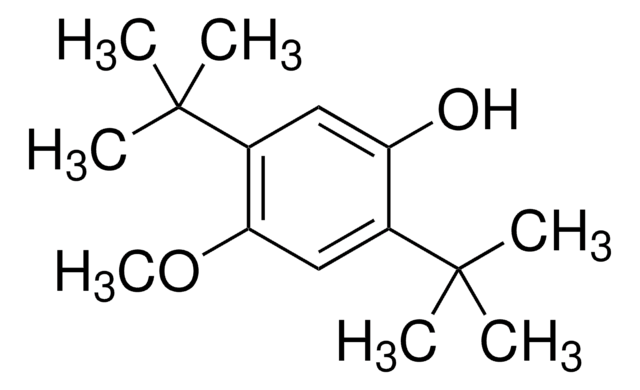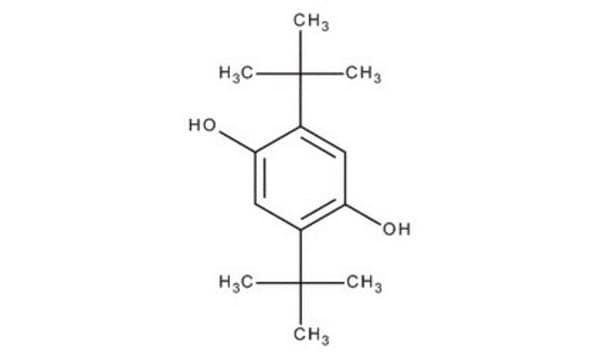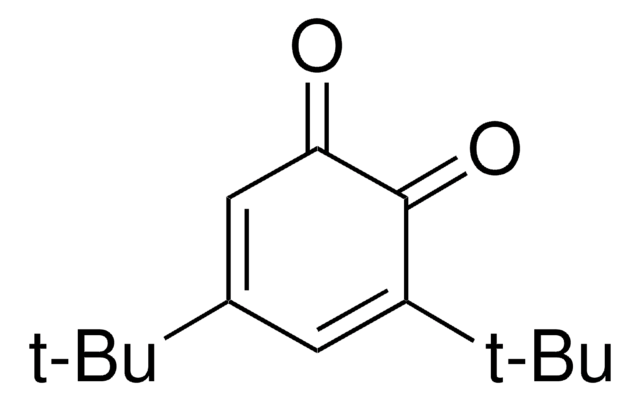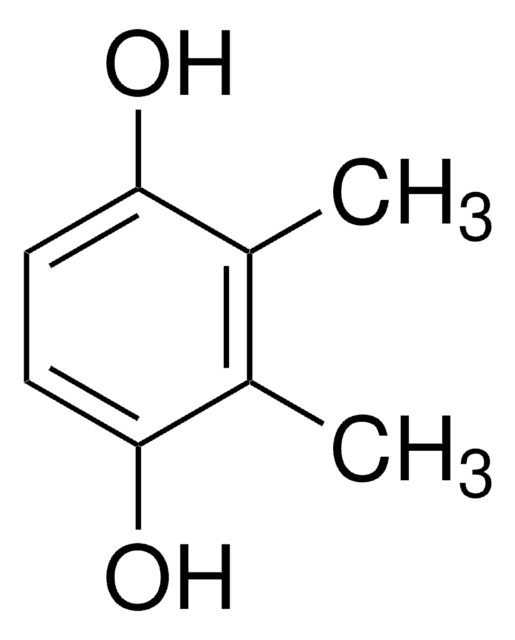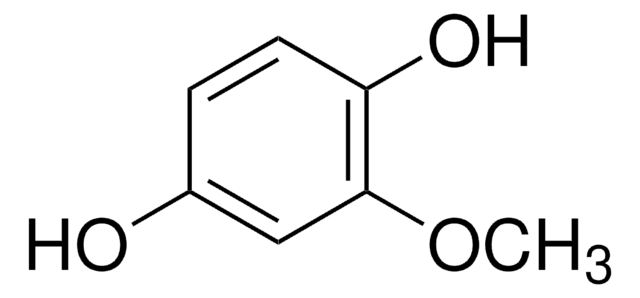112976
2,5-Di-tert-butylhydroquinone
99%
Synonym(s):
1,4-Dihydroxy-2,5-di-tert-butylbenzene, 2,5-Bis(1,1-dimethylethyl)-1,4-benzenediol, 2,5-Di-tert-butyl-1,4-benzenediol, 2,5-Di-tert-butyl-1,4-benzohydroquinone, 2,5-Di-tert-butyl-1,4-dihydroxybenzene, 2,5-Di-tert-butylquinol, 2,5-Dihydroxy-1,4-di-tert-butylbenzene, 2,5-Ditert-butylbenzene-1,4-diol, 3,6-Di-tert-butylhydroquinone
About This Item
Recommended Products
Quality Level
Assay
99%
form
solid
autoignition temp.
790 °F
mp
216-218 °C (lit.)
SMILES string
CC(C)(C)c1cc(O)c(cc1O)C(C)(C)C
InChI
1S/C14H22O2/c1-13(2,3)9-7-12(16)10(8-11(9)15)14(4,5)6/h7-8,15-16H,1-6H3
InChI key
JZODKRWQWUWGCD-UHFFFAOYSA-N
Looking for similar products? Visit Product Comparison Guide
Application
Biochem/physiol Actions
Signal Word
Danger
Hazard Statements
Precautionary Statements
Hazard Classifications
Acute Tox. 3 Oral - Aquatic Acute 1 - Aquatic Chronic 1 - Skin Sens. 1 - STOT SE 3
Target Organs
Respiratory system
Storage Class Code
6.1D - Non-combustible acute toxic Cat.3 / toxic hazardous materials or hazardous materials causing chronic effects
WGK
WGK 3
Flash Point(F)
Not applicable
Flash Point(C)
Not applicable
Personal Protective Equipment
Certificates of Analysis (COA)
Search for Certificates of Analysis (COA) by entering the products Lot/Batch Number. Lot and Batch Numbers can be found on a product’s label following the words ‘Lot’ or ‘Batch’.
Already Own This Product?
Find documentation for the products that you have recently purchased in the Document Library.
Customers Also Viewed
Our team of scientists has experience in all areas of research including Life Science, Material Science, Chemical Synthesis, Chromatography, Analytical and many others.
Contact Technical Service
